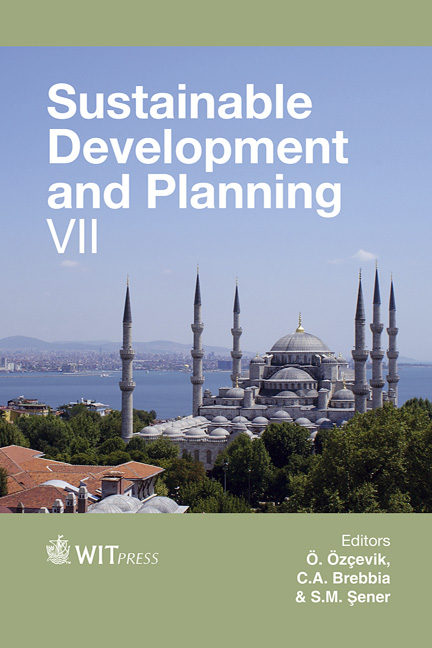The Role Of Small Towns In Sustainable Rural Development
Price
Free (open access)
Transaction
Volume
193
Pages
9
Page Range
193 - 201
Published
2015
Size
1,220 kb
Paper DOI
10.2495/SDP150161
Copyright
WIT Press
Author(s)
F. Vaccher
Abstract
Although the African continent is still the least densely populated, it is also an area where demographic pressure is growing continuously; in general, however, development patterns have been unsustainable and helped multiply negative factors.
In this context, the sustainable development of the urban areas that are somewhere between the city and country in size becomes an important theme: on the one hand, it is an opportunity to invert the trend towards the polarisation of the large urban centres and the ensuing unchecked urbanisation; on the other, it is a means of keeping under control spontaneous or rather unplanned urbanisation in rural areas that might lead to problems in managing the territory. A small rural centre north of Benin, Matéri was chosen to start an experimental project with the aim of developing a new, rural development model as an alternative to western-style planning, able to create a self-sufficient economy in which housing and infrastructures are interwoven with natural resource management, the role of family agriculture, and the reciprocal relations between city and brousse. This research was carried out in the environmental sustainability Atelier of IUAV University Venice, together with the local community and institutions, to provide a solution to indications in the city’s document plan.
Keywords
new rural–urban model, sustainable spatial planning, identity of the contemporary African town





